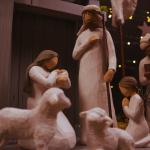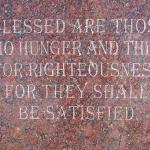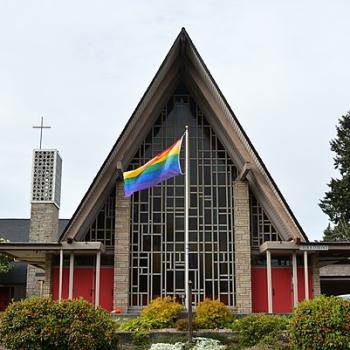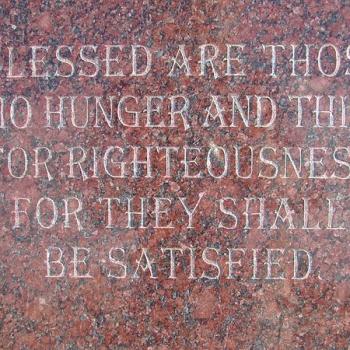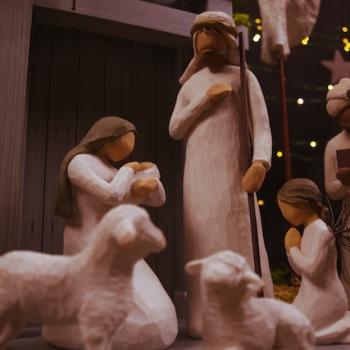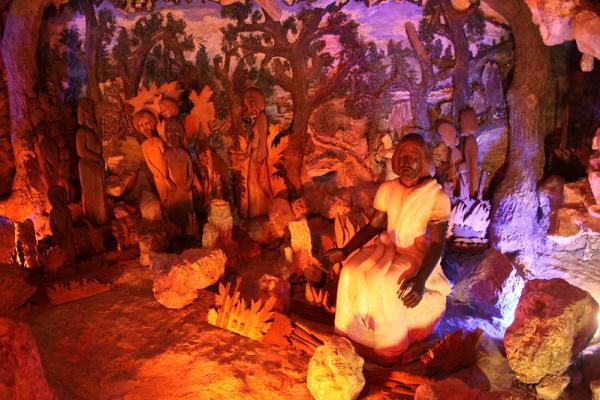
Beloved And Misunderstood
The Sermon on the Mount is the cornerstone of Jesus’ teaching, embodied in his ministry. It encapsulates Jesus’ vision of how to live into our true identities as living images of Love.
Yet despite being one of the most beloved passages of scripture, the Sermon on the Mount is frequently misunderstood and weaponized. Sometimes it’s benignly regarded as an impossible standard, calling us not to obedience but humility as it exposes our shortcomings. More nefarious interpretations draw unfounded and antisemitic contrasts between Judaism and the values of Jesus. As Dr. Amy-Jill Levine asserts, “You don’t need to make Judaism look bad to make Jesus [who was Jewish] look good.” And most egregiously, Jesus’ praise of the meek has been twisted to encourage submission in the face of oppression, bolstering imperialism, colonialism, and slavery.
The Sermon on the Mount is not an impossible standard, for Love empowers us to live into its teachings. It is not an indictment of Judaism, for it draws on the Jewish prophetic tradition. And far from a tool of oppression for the Powers that Be, when fully applied, it subverts power altogether.
The Sermon on the Mount is the blueprint for living into the Beloved Community here and now. It is world-upending wisdom that flips the conventional understanding of power upside-down as surely as Jesus flipped the tables in the Temple. When we take it to heart, we become who we are made to be, transforming ourselves, our relationships, and our world.
In the weeks leading up to Lent, the Sermon on the Mount prepares us to follow Jesus to and beyond the cross. In my upcoming articles, I will follow the lectionary and apply Jesus’ radical teachings to our world today. It starts with the beatitudes, or blessings, upon those once thought to be condemned.
Blessed Are The Poor In Spirit, For Theirs Is the Kingdom of Heaven
What does that mean?
Luke’s version, “Blessed are the poor,” is unmistakable. Those struggling to make ends meet are not the first people we are inclined to think about when we contemplate living a “blessed” life. But Jesus says theirs is the kingdom of God.
Jesus declares that the poor own the kingdom, for God builds the kingdom around them.
Worldly wealth is relative: how much more do we have than others? But Jesus turns wealth upside-down. True riches lie not in accumulation of possessions and power, but in seeing the infinite value of our fellow human beings. Striving to get “ahead” and “above” others leads away from the kingdom. Blessing lies in relationship, in the richness of opening ourselves to one another in vulnerability and compassion.
The “poor in spirit” may be those who, though in possession of material fortune, stand in solidarity with the poor, working to distribute the resources of the world equitably. Blessed are those who are dissatisfied with the status quo, who are restless in a world of poverty and oppression. Blessed are those who will stop at nothing to see that the needs of the people are met.
“Poor in spirit” could also refer to those in spiritual crisis due to the injustice of the world. Blessed are those who struggle to pray in a world that declares God is reflected in conquest and empire. Blessed are those who cannot believe in a God who would condemn anyone to a life of oppression and despair.
Jesus reveals God to be precisely where the world tells the poor and dispirited not to look… within themselves.
And we find God within ourselves when we recognize that our personal wellbeing is inextricably tied to the wellbeing of all creation. We serve God when we serve one another.
Blessed Are Those Who Mourn, For They Shall Be Comforted
Blessed are those who acknowledge suffering, who feel pain, who experience loss. Blessed are the compassionate who share in the grief of others and shoulder burdens. Blessed are those for whom tears are contagious, who sit with others in the shadow of despair with a comforting touch, word, or presence.
No grief is too small or great for our empathy. Jesus wept when he was moments away from raising Lazarus from the dead, because he shared in the sincere sorrow of Mary and Martha. We can mourn pain and loss even as we have faith that, in the end, all will be well.
But of course, in a world of war and destitution, of floods, fires, and famine, the deluge of grief can be overwhelming. Truly living into our connection with all of creation makes mourning inevitable. Mourning is the soul’s protestation against apathy and cruelty.
We are called to mourn for those who die of hunger and exposure to the elements, those pierced with bullets or blown apart by bombs. We are called to mourn for those whose stomachs rumble, who shiver, who ache under heavy loads. We are called to mourn in empathy with the suffering in our neighborhoods and our world.
Sometimes we mourn when there is nothing else we can do, to acknowledge the loss and pain. But sometimes we mourn in the midst of struggle, proclaiming with tears and anguish that the world is not as it should be. When we cannot feel, we cannot act.
Comfort comes not only from words and embraces, but also from solidarity and self-giving. Jesus promises comfort to those who mourn, and he tells his followers to feed, serve, and heal one another.
We are called to solidarity and action that transforms tears into laughter and mourning into joy.
Blessed Are The Meek, For They Shall Inherit the Earth
The meek inherit the earth?
What about the meek who are trampled, shoved aside, or exploited?
What does this mean in a world where the rich and powerful impose the borders and define the rules and conditions by which the poor and powerless must live?
Jesus does not give this blessing as an instruction to be acquiescent to one’s own oppression. Meekness is not about being a pushover. It is rather about humility, about not setting ourselves over and against others. Jesus wants us to recognize our immeasurable worth… and that of everyone else.
The meek, the humble, those who know their place in the intricate, interconnected harmony of all creation… inherit the earth because they nurture it.
Right now the earth is being poisoned and polluted, scorched by fire and shattered by weapons. Profiteers exploit the land and strip the earth of her resources. War destroys the very land that those who wage it wish to control.
The meek reject the hubris of exploiting other people and the planet for personal gain.
Meekness is not incompatible with boldness, but with arrogance. The Water Protectors at Standing Rock, for instance, were humble in their recognition that water is life. Yet they were bold in speaking truth to the power and arrogance that would destroy the land and ecosystems that depended on it.
God created humanity to be stewards of the earth in all her glorious beauty and bounty. The earth takes care of us as we take care of her.
The earth belongs not to the forces that deplete and poison it, but to those who nurture it with love. And that is good news for all of us who share this fragile home, which teaches those humble enough to listen how to live in compassion for all creation.
Blessed Are Those Who Tune In Next Time…
For this article has already gone on for a while, and there are still five beatitudes left! And that’s just the beginning of Jesus’ world-upending Sermon on the Mount, God’s blueprint for building Beloved Community on earth.
Image: Crystal Shrine Grotto: Sermon on the Mount. Sculpture in Memorial Park, Memphis, TN, by artist Dionicio Rodriguez. Photo by Brent Moore. Available on Flickr via Attribution-Non Commercial 2.0 Generic Creative Commons license.

